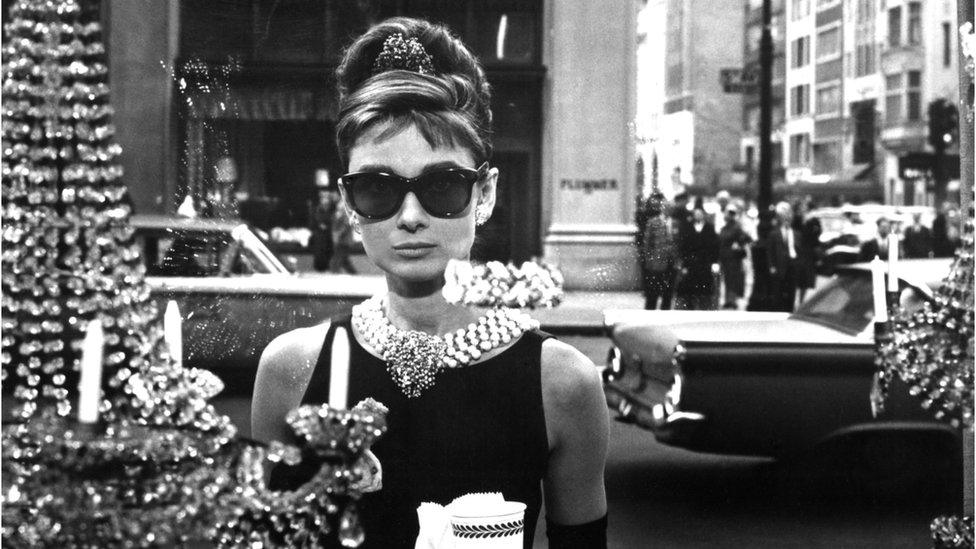Louis Vuitton casts doubt over $16bn Tiffany takeover
- Published

The 1961 film Breakfast at Tiffany's film, starring Audrey Hepburn, made the store famous
The world's biggest luxury goods firm, LVMH, has cast doubt over its planned $16bn (拢12.5bn) takeover of US-based jeweller Tiffany.
LVMH agreed to acquire Tiffany last November, but coronavirus-induced turmoil on financial markets has overshadowed the deal.
After days of speculation, LVMH said on Thursday that it would not buy Tiffany shares on the open market.
It could be a sign that LVMH wants to renegotiate a cheaper price.
Tiffany's share price tumbled in March on the back of expectation that sales of its luxury jewellery would fall. Although the stock recovered, it has fallen again this week on speculation LVMH's bid was in doubt.
LVMH's billionaire chief executive Bernard Arnault has long coveted buying Tiffany, a brand that hit global fame in the Audrey Hepburn romance Breakfast at Tiffany's.
He agreed to pay $135 a share, but the price has sunk to about $114 a share. LVMH's statement on Thursday comes ahead of Tiffany's quarterly results, due out next week.
Tiffany is known for its signature robin's-egg blue packaging
LVMH said that during its board meeting on Tuesday, the firm "notably focused its attention on the development of the pandemic and its potential impact on the results and perspectives of Tiffany & Co with respect to the agreement that links the two groups".
It added: "Considering the recent market rumours, LVMH confirms, on this occasion, that it is not considering buying Tiffany shares on the market."
It gave no further details.
Tiffany is something of a New York institution and its flagship store is next to Trump Tower on 5th Avenue.
Founded in 1837, it employs more than 14,000 people and operates about 300 stores - 12 of them in the UK.
LVMH has 75 brands, 156,000 employees and a network of more than 4,590 stores. Its brands include Louis Vuitton, Kenzo, Tag Heuer, Dom P茅rignon, Moet & Chandon and Christian Dior.
- Published25 November 2019
- Published28 October 2019
- Published5 June 2019